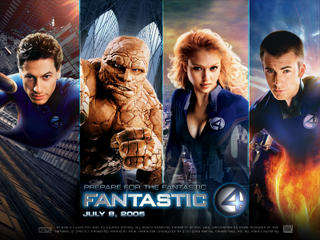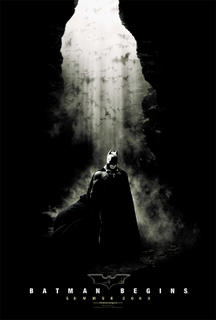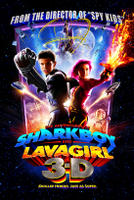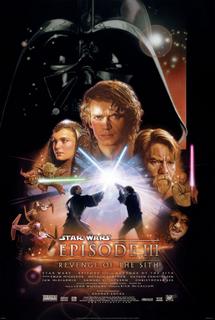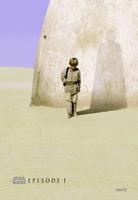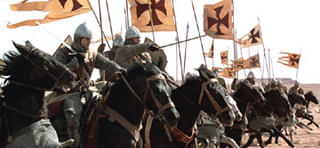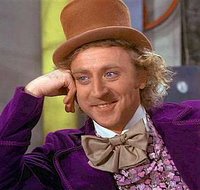 Willy Wonka: But, Charlie, don't forget what happened to the man who suddenly got everything he always wanted.
Willy Wonka: But, Charlie, don't forget what happened to the man who suddenly got everything he always wanted.Charlie Bucket: What happened?
Willy Wonka: He lived happily ever after.
So goes the closing dialogue of Willy Wonka and the Chocolate Factory (1971). This was one of my favorite movies as a child. My cousins and I constructed our very own Wonka-esque "chocolate factory" out of junk and cast-off machinery on our family farm. We penned our own lyrics to the haunting and mind-numbing "Oompa Loompa" tune. This movie is embedded in my memories of youth. As special as it is, I was never satisfied by the end of the movie.
I have a hard time dealing with Wonka's statement in the closing lines. Are we really happier if we get everything we always wanted? This statement sort of undoes the whole movie. The Oompa Loompa's have been preaching to us through their eerie little songs about the dangers of being a glutton, a spoiled brat, and a disobedient child. Why then does Wonka suddenly undermine the cinematic exhortation with his sugary dose of sentiment? I guess he is just the candyman after all.
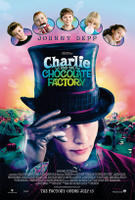 Enough of the past, let's jump into the Way-Back Machine and return to our present day. Tim Burton has produced his own vision of Roald Dahl's story. I must say I was quite intrigued by this pairing of Burton and Dahl. The only one of Dahl's children's stories I have read is The Witches. I have read a few of his short stories for adults. (Trivia Alert: Dahl wrote the screenplay for the 007 movie You Only Live Twice). Dahl has a dark thread in his writing. Many of his short stories have a wicked, Hitchcock/Twilight Zone-style twist. (Trivia Alert 2: Dahl wrote the scripts for at least six episodes of Alfred Hitchcock Presents.) If I were looking for a director to handle Dahl's stories I would have two choices: M. Night Shyamalan or Tim Burton. If it were one of the children's stories Burton would be the clear choice.
Enough of the past, let's jump into the Way-Back Machine and return to our present day. Tim Burton has produced his own vision of Roald Dahl's story. I must say I was quite intrigued by this pairing of Burton and Dahl. The only one of Dahl's children's stories I have read is The Witches. I have read a few of his short stories for adults. (Trivia Alert: Dahl wrote the screenplay for the 007 movie You Only Live Twice). Dahl has a dark thread in his writing. Many of his short stories have a wicked, Hitchcock/Twilight Zone-style twist. (Trivia Alert 2: Dahl wrote the scripts for at least six episodes of Alfred Hitchcock Presents.) If I were looking for a director to handle Dahl's stories I would have two choices: M. Night Shyamalan or Tim Burton. If it were one of the children's stories Burton would be the clear choice.Burton's films also have a dark thread in them, but balances the dark tones with nostalgia, camp, and cartoonish fun. The combination of Burton and Dahl is perfect in this film. Yet, before I saw it I was hesitant only because of my sentimental appreciation for the 1971 film. I admire Burton's work, but could he improve on the 1971 film? I am surprised to admit that he did - and mainly because he got the ending right!
I confess that I have not read Dahl's original story. I don't know how it ends. When I say that Burton got the ending right I mean he ended the story the way it should end. Burton's version of the story is a perfect parable for children and adults in our culture. Each of the children who win a golden ticket to Wonka's factory, with the exception of Charlie, is a token for the problems of our age. The vices of gluttony and overconsumption are embodied in Augustus Gloop. Arrogance and unbridled competitiveness are represented by Violet Beauregarde. Greed and brattiness are the sole traits of Veruca Salt. Violence and anger are on display in Mike Teavee. Perhaps these characters are simplistic, but do we really want an honest depiction of the situation. We live in a land in which we are concerned about childhood obesity while many more children starve. We live in a land in which some parents berate their children about being the best and the only attention they give their children is the coaching to succeed. Meanwhile in other parts of our land children are abandoned by parents who do not care. We live in a land in which we buy storage for stuff we do not need. We are building bigger barns to store our goods but we are never satisfied. We live in a land in which the line between reality and virtual reality is being blurred. Are violent video games just games or are they crime simulators. We live in an often greedy, selfish, competitive, angry land. In Burton's version of the story, Wonka himself is a victim of greed, selfishness, competition, and anger. Wonka has closed his factory to the public because he no longer trusts society. Instead of appreciating the artistry and goodness of his creations, the world only wants to profit off his talents. This movie also speaks quite convictingly to our consumer age.
Charlie Bucket and his family shine like stars against the darkness of the greedy, selfish, competitive, angry world conjured by Burton and Dahl's combined imaginations. The Bucket family is exceedingly poor, but they are happy. The virtues of love, kindness, and optimism rule their household. The strength and quality of Charlie's family becomes the basis for Burton's wonderful ending to the movie. I won't spoil the ending. You should see it for yourself. I will simply say that it is delightful to see a happy family win out at the end of the movie. As much as I enjoyed seeing the glass elevator fly over London to the symphonic strains of Pure Imagination, I am all the more pleased with the closing scene of Wonka and the Bucket family enjoying a good meal as family. Are we really happier if we suddenly get everything we always wanted? I applaud Tim Burton for suggesting that happiness can more easily be found with family at the dinner table.
